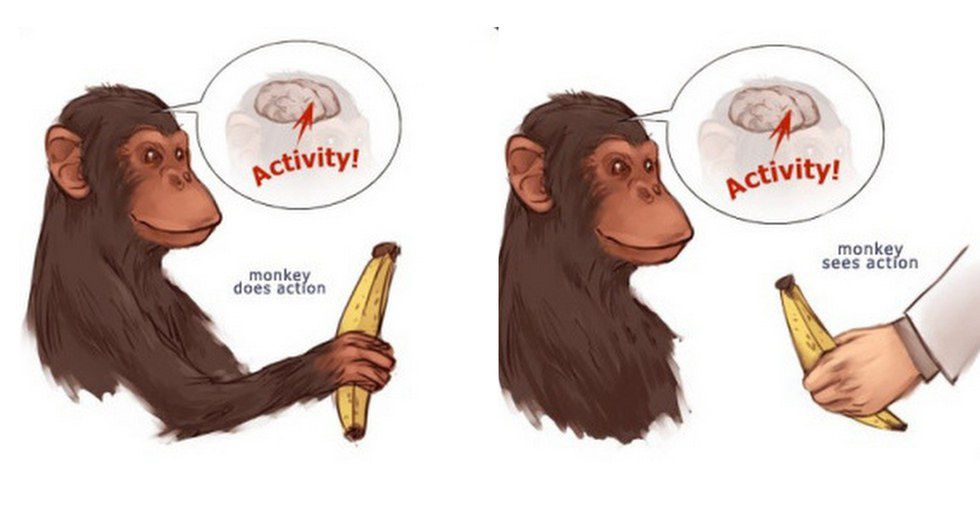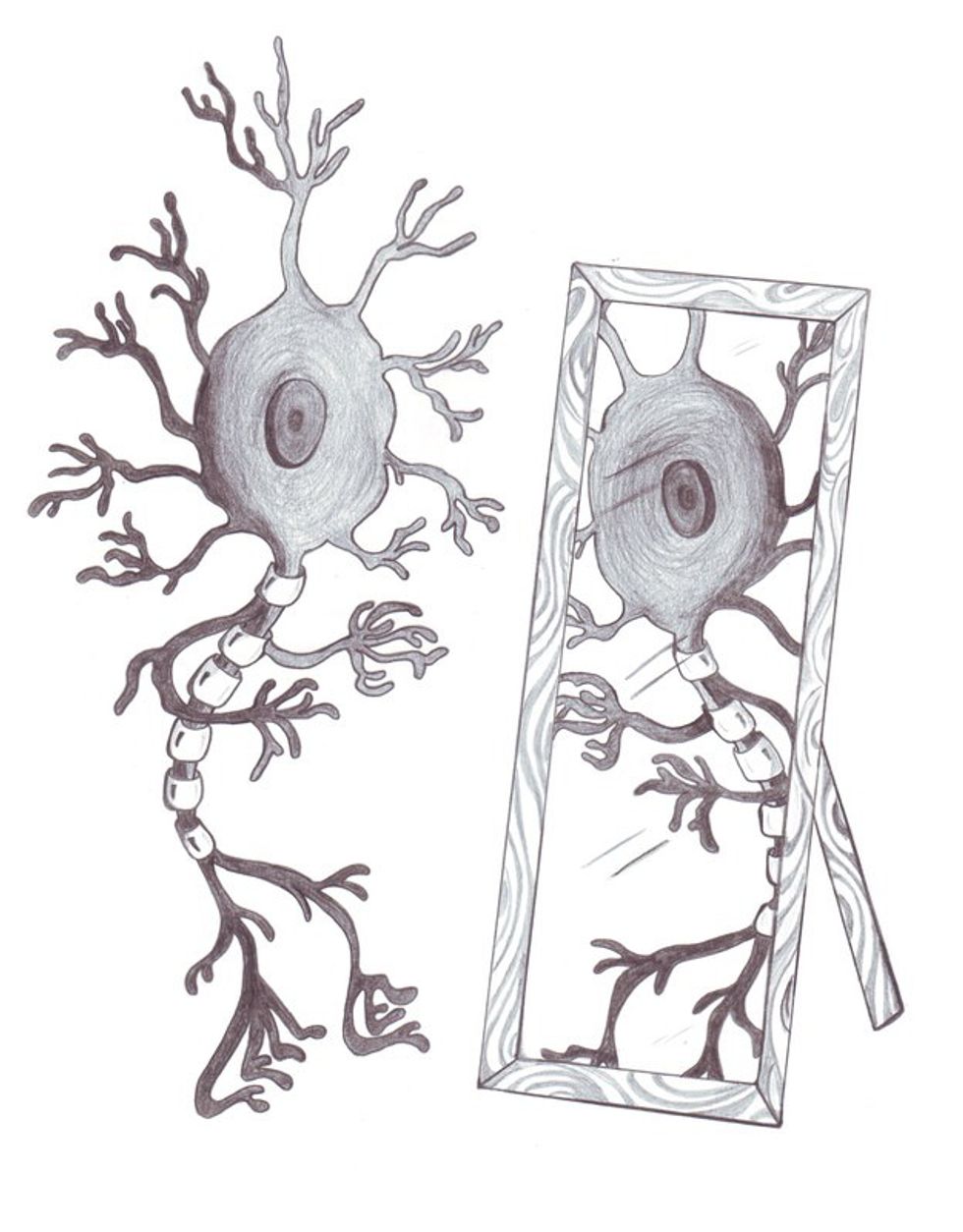Slapstick comedy is one the more popular forms of comedy in movies and TV nowadays. You see someone get hurt or fall and, along with laughing hysterically, you wince, cringe and make a myriad of other sympathetic gestures at the person’s pain because you know that hurt. You can almost feel how badly it hurt. We’ve all experienced this before.
What we haven’t experienced is running down a roof in a shopping cart and taking a head dive into the pavement; yet, we still feel it. So, how do we understand, so immediately and instinctively, their thoughts and feelings? A 1-year-old child picks up their parents phone and walks around with it babbling as though she were talking on the cell phone herself. How does she know that’s what one does with a phone?
Well, it’s because of a little thing in our minds called mirror neurons. Mirror neurons are small parts of the brain that are responsible for imitation, understanding intentions, empathy and much more. They were discovered in primates in the 1990s and have since been under research in both animals and humans.
Mirror neurons are what make small children pick up the nearest object and pretend to be vacuuming right along with mommy using the same movements. You didn’t specifically teach them the action; the mirror neurons saw and experienced the action as though the child was doing it, and hence, they learned that’s what you do when you vacuum. They may not know all the nuances of the action, but they know the basic motor skills that go along with this action.
The strange thing about them, however, is that they don't respond to pantomimes, to meaningless gestures or to random animal sounds. They seem specially tuned to respond to actions with clear goals – whether those actions are perceived through sight, sound or any other sensory pathway.
Now, this just seems like a rather glorified explanation of “monkey see, monkey do,” but in reality, it has many more implications as well; especially when the mirror neurons aren’t functioning how they should be.
Throughout our lives, we learn all the social skills and everything we need to be a proper adult through observation. The mirror neurons take all those observations and translate it into the “why, how and what for” that people do social things.
When the mirror neurons are not working correctly, it causes a disruption in this observation and internalization, which some scientists are now speculating may be one of the causes of the deficits in social interaction and communication skills that some people with autism have. Most of the social niceties and subtleties that our society is wrought with nowadays are almost all nonverbal, meaning we have to rely on our mirror neurons to observe and figure out what it is people are doing and why it’s working.
In the brains of those with autism, however, the mirror neurons don’t respond to seeing other people engaging in these activities; they only respond anomalously (only to their own movement) and because of that, they only understand what they do and not the intentions behind the actions of others, what some scientists are calling Broken Mirror Syndrome.
Now, while mirror neurons are closely related to empathy and imitation of actions and speech, the whole process involves a tangled process involving motor emulation, abstract cognition and other emotional and instinctual components that all work together to make us the human beings we are. Neurologists have come to the conclusion that mirror neurons are not the end all, be all of imitation, empathy or deficits of those with autism, but these fascinating little cells certainly play a part and research just might one day soon explain just what that part is and all that they do.












 The minimum wage is not a living wage.
StableDiffusion
The minimum wage is not a living wage.
StableDiffusion
 influential nations
StableDiffusion
influential nations
StableDiffusion












